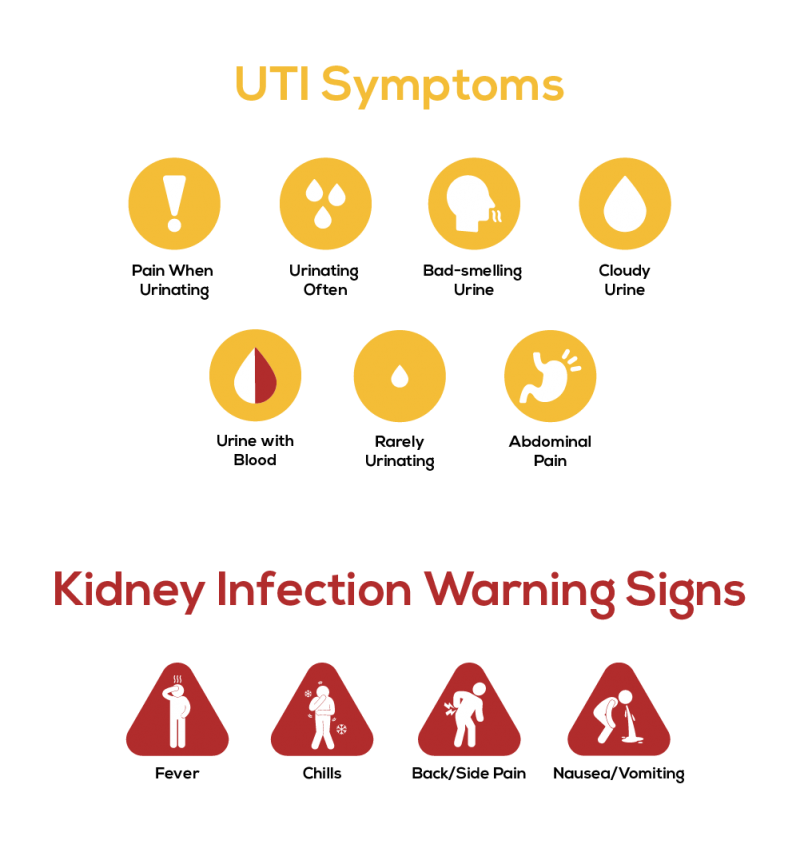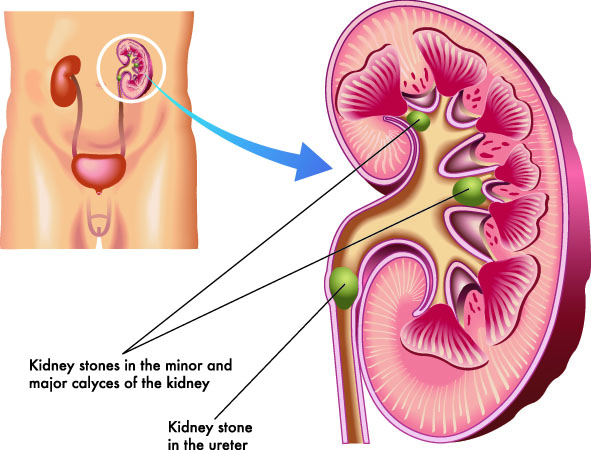Exploring the Symptoms and Causes of Kidney Stones in Comparison to Urinary System System Infections: A Comprehensive Overview
The expedition of kidney rocks and urinary tract infections (UTIs) exposes a complicated interaction of symptoms and underlying reasons that call for careful exam. While both conditions can result in hematuria, they present distinctive scientific attributes and emerge from different etiological elements. Understanding the nuances of each problem is critical for reliable diagnosis and administration. What are the essential differences in their signs and symptoms, and how might these educate treatment methods? The solutions to these concerns may provide essential insights into the prevention and treatment of these common urological problems.
Introduction of Kidney Stones
Kidney rocks, likewise understood as kidney calculi, kind when specific compounds in the urine crystallize and accumulation, bring about the advancement of difficult deposits within the kidneys. These rocks can differ in size, varying from a grain of sand to a golf sphere, and can be made up of different products, the most usual being calcium oxalate, uric acid, struvite, and cystine. The development of kidney rocks is affected by numerous factors, consisting of dietary practices, liquid intake, and genetic proneness.
Symptoms of kidney stones might consist of extreme discomfort in the back or side, blood in the urine, nausea or vomiting, and frequent peeing, specifically as the rock relocates through the urinary system system. Diagnosis commonly entails imaging research studies such as ultrasound or CT scans, alongside urinalysis to determine the stone's structure.
Therapy choices vary based upon the dimension and sort of rock, along with the seriousness of symptoms (Kidney Stones vs UTI). Tiny stones might pass naturally with increased liquid consumption, while bigger rocks may call for clinical interventions such as lithotripsy or surgical removal. Understanding the pathophysiology and threat variables related to kidney rocks is essential for reliable prevention and monitoring
Overview of Urinary System Tract Infections
Urinary tract infections (UTIs) are common bacterial infections that impact any type of part of the urinary system, consisting of the kidneys, ureters, bladder, and urethra. They mainly happen when bacteria, frequently from the gastrointestinal system, get in the urinary system, leading to inflammation and infection.
The occurrence of UTIs is especially greater in females than men, largely as a result of physiological distinctions, such as a much shorter urethra. Danger aspects consist of sexual task, certain contraceptive approaches, urinary system retention, and dehydration. The medical diagnosis of UTIs is usually verified with urine tests, which may expose the presence of bacteria, leukocyte, or red cell.

Signs of Kidney Stones
The discomfort related to kidney rocks can materialize in different methods, often leading people to look for clinical focus. Among one of the most common symptoms is severe pain, commonly localized in the lower back or side, which might emit to the abdomen or groin. This pain, typically referred to as sharp or cramping, can take place unexpectedly and may change in intensity.
Additionally, individuals might experience hematuria, or blood in the pee, which can range from tiny quantities to noticeable staining. This signs and symptom might be gone along with by adjustments in urinary system behaviors, such as redirected here boosted regularity or urgency, as well as discomfort during urination. Nausea and vomiting are also widespread, usually arising from the body's response to intense pain.
In some cases, people might experience high temperature and cools, especially if a secondary infection straight from the source establishes due to the obstruction triggered by the rocks. On the whole, the combination of extreme pain, hematuria, transformed urinary system patterns, and intestinal signs can give substantial understanding into the existence of kidney rocks, warranting punctual medical assessment and intervention. Recognizing these signs is vital for prompt medical diagnosis and reliable monitoring of the condition.
Symptoms of Urinary System System Infections
Infections within the urinary system usually offer a variety of distinct signs that can considerably influence everyday life. One of the most usual symptoms consist of a consistent desire to urinate, commonly accompanied by a burning experience throughout peeing, known as dysuria. Individuals might likewise experience enhanced regularity of urination, producing tiny amounts of urine each time.
Various other notable signs and symptoms include fetid or gloomy pee, which might suggest the visibility of microorganisms or pus. Sometimes, pee might show up pink or red as a result of the presence of blood, a problem referred to as hematuria. Furthermore, people might experience pelvic pain or stress, which can additionally exacerbate the sensation of seriousness.
Systemic signs and symptoms might also show up, such as fever, cools, and tiredness, particularly if the infection has actually risen to the kidneys. It is important to identify these signs early, as neglected urinary system system infections can lead to extra extreme difficulties. Kidney Stones vs UTI. Prompt clinical attention is advised when these signs are observed, enabling for suitable diagnostic assessment and therapy to reduce pain and avoid additional health and wellness concerns
Causes of Each Condition
Often, kidney rocks and urinary system tract infections develop from distinctive yet in some cases overlapping reasons that can influence people differently. Kidney stones normally develop as a result of metabolic over at this website variables, nutritional choices, and hereditary predispositions. Enhanced degrees of calcium, oxalate, or uric acid in the pee can cause rock formation. Dehydration, insufficient fluid intake, and high-sodium diet regimens can worsen these conditions, advertising formation within the urinary tract.

Understanding these unique causes is important for avoidance and treatment. Kidney Stones vs UTI. While way of living adjustments may mitigate the danger of kidney stones, appropriate health and punctual treatment of urinary system tract infections are crucial for decreasing their reoccurrence and connected issues
Conclusion
In summary, kidney stones and urinary tract infections existing distinctive signs and symptoms and underlying reasons. Kidney rocks are characterized by extreme pain and metabolic elements, while urinary system system infections mainly entail bacterial infections leading to urinary system urgency and discomfort.
The expedition of kidney stones and urinary system system infections (UTIs) discloses an intricate interaction of symptoms and underlying reasons that necessitate cautious assessment.Urinary system system infections (UTIs) are common bacterial infections that influence any type of part of the urinary system, including the kidneys, ureters, bladder, and urethra.Regularly, kidney stones and urinary system infections arise from distinct yet occasionally overlapping causes that can affect people in different ways.In recap, kidney rocks and urinary system system infections present distinct signs and underlying causes. Kidney rocks are characterized by extreme pain and metabolic aspects, while urinary system infections mostly entail microbial infections leading to urinary system seriousness and pain.